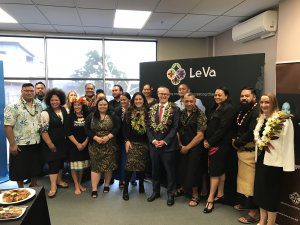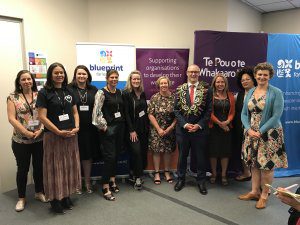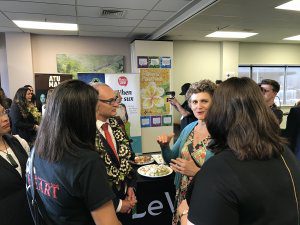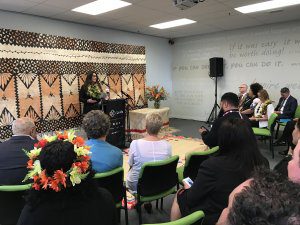This funding ensures that workforce development organisations like Le Va, Te Pou o te Whakaaro Nui (Te Pou) and Blueprint for Learning will have increased funding. Government says this will enable 12,000 more people to receive training over four years, boosting services to those seeking help for mild to moderate mental health and addiction issues.
Le Va who hosted Minister of Health, Hon David Clark when he made the announcement, are one of the first organisations to receive additional funding as part of the Government’s plan to rollout frontline services nationwide to increase support to people with mild to moderate mental health and addiction needs.
Frontline workers from the mental health and addiction sector who attended the announcement, shared the growing demand for support and the need for upskilling by the frontline workforce and community organisations to meet this need.
Minister Clark said all this extra training will make it easier for support workers to identify when people could benefit from more support.
“Right across the country there will many more people who can provide help and support to people in distress. That means more people will get the help they need earlier – and without having to wait.”
“The more people who know how to identify when someone is in need and understand how to have a conversation that leads to someone getting help earlier, the more likely we are to break the cycle and prevent someone reaching a crisis point.”
The mental health and addiction workforce initiatives announced include:
- More than tripling the number of people in community organisations, such as clubs and sporting organisations, who can undertake the MH101® and Addiction 101 programmes which are routinely booked out. There will be more than 8,000 extra places available over the next four years.
- Upskilling 350 nurses who will receive training to offer mental health and addiction assessments, advice and referrals where required, to people when they visit their GP.
- Starting new training programmes for health coaches and health improvement practitioners. These new mental health workers will work alongside a primary health care team to provide mental health support and link up with community services and more specialised support.
- More than doubling our cultural competency programme with 3,500 more places to ensure Māori and Pacific people receive culturally appropriate support when they need it.
Click here to read the press release.
Published on: 27 November 2019



